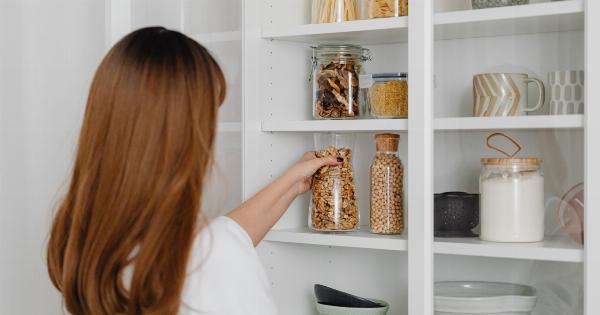As conscientious consumers, it’s essential to be aware of the potential dangers lurking in the food products we bring into our homes.
While many food additives are considered safe for consumption, others have been linked to various health issues and should be avoided. This article aims to shed light on ten dangerous food additives that you should keep away from your kitchen.
1. Artificial Sweeteners
Artificial sweeteners like aspartame, sucralose, and saccharin are commonly used as sugar substitutes in diet products and low-calorie foods.
However, research suggests that excessive consumption of these sweeteners may lead to adverse effects such as headaches, digestive problems, and even an increased risk of certain diseases.
2. Monosodium Glutamate (MSG)
MSG is a flavor enhancer used in many processed foods, including soups, snacks, and packaged meals. While the FDA considers MSG safe for consumption, some individuals may experience side effects such as headaches, flushing, and sweating.
It’s important to be cautious and check food labels for the presence of MSG if you’re sensitive to it.
3. Artificial Food dyes
Artificial food dyes are commonly found in many colorful packaged foods, candies, and beverages. These dyes, such as Red 40, Yellow 5, and Blue 1, have been linked to hyperactivity in children and may also be contaminated with cancer-causing substances.
Opting for natural food dyes or avoiding artificially colored foods is a safer choice.
4. Sodium Nitrite
Sodium nitrite is a preservative commonly used in processed meats like bacon, hot dogs, and deli meats.
While it helps prevent bacterial growth and preserves the red color of meats, it can also form harmful compounds called nitrosamines when exposed to high heat. Nitrosamines have been linked to an increased risk of cancer, particularly colorectal cancer.
5. High-Fructose Corn Syrup (HFCS)
High-fructose corn syrup is a widely used sweetener in processed foods and beverages. Consuming excessive amounts of HFCS has been linked to obesity, type 2 diabetes, and other metabolic disorders.
It’s crucial to read food labels and choose products that don’t contain this harmful additive.
6. Trans Fats
Trans fats are artificially created fats found in many fried and processed foods, including cookies, crackers, and margarine.
They increase LDL (bad) cholesterol levels while lowering HDL (good) cholesterol, leading to an increased risk of heart disease, stroke, and other health problems. Opting for healthier fats like olive oil or avocado is a better choice.
7. BHA and BHT
Butylated hydroxyanisole (BHA) and butylated hydroxytoluene (BHT) are antioxidants commonly added to processed foods to prevent spoilage and extend shelf life.
Although these additives are deemed safe in small amounts, studies have shown that they may be carcinogenic and have potential negative effects on the endocrine system.
8. Sodium Benzoate
Sodium benzoate is a preservative often used in acidic foods and beverages, including carbonated drinks, fruit juices, and pickles. When combined with vitamin C, sodium benzoate can form benzene, a known carcinogen.
Repeated exposure to benzene has been associated with an increased risk of leukemia and other blood disorders.
9. Potassium Bromate
Potassium bromate is a food additive used to improve the texture and rise of bread and other baked goods. However, it has been classified as a possible carcinogen by the International Agency for Research on Cancer.
Some countries have banned its use, so it’s advisable to choose bread products labeled as bromate-free.
10. Artificial Flavorings
Artificial flavorings may contain a variety of chemicals and additives that mimic natural flavors.
While they are generally recognized as safe for consumption, some individuals may have adverse reactions to these additives, such as allergic reactions or sensitivities. Opting for natural flavorings whenever possible is a safer choice.




























